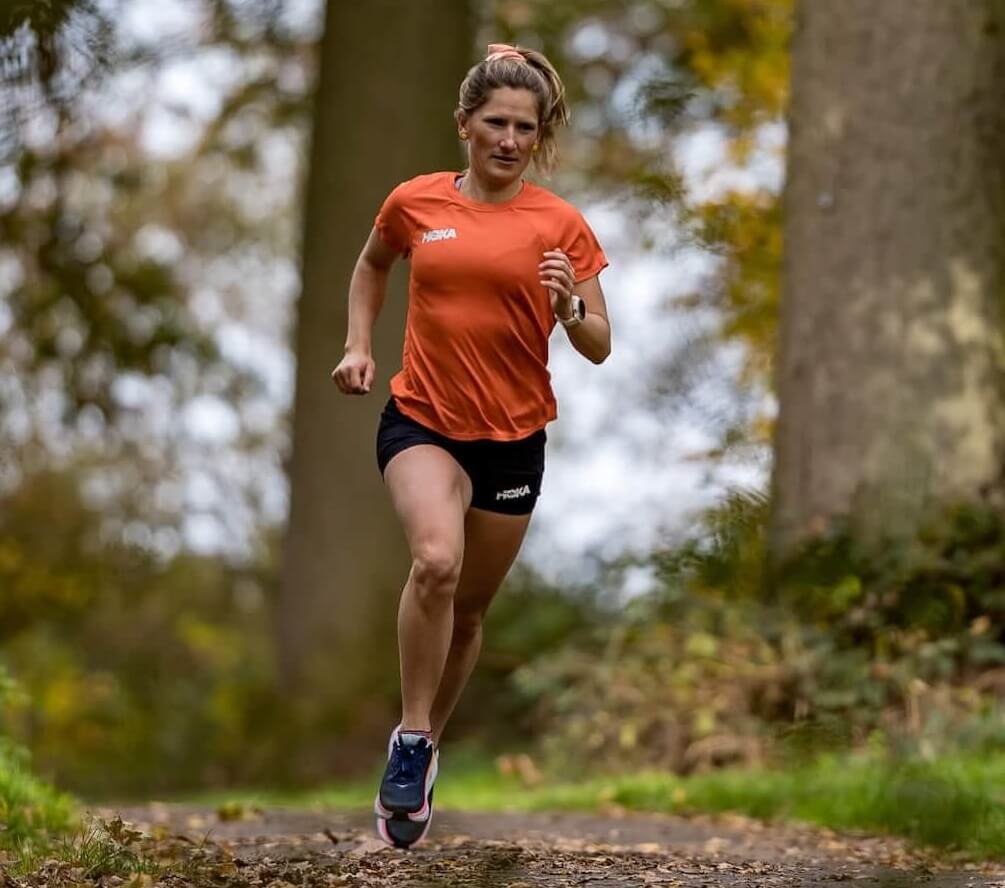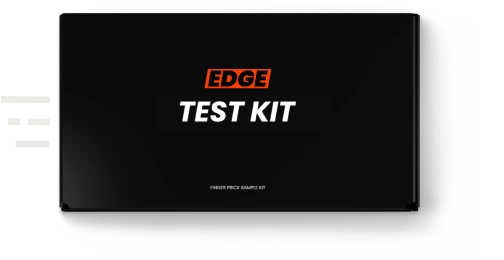
Triathlon
Getting Your Race Day Nutrition Right
It’s race day and feelings of nerves and anxiety will kick in, but don’t let this stop you from eating or forgetting to hydrate. Read on to find out about how to work out your race day nutrition.
1 min read
Published on
October 16, 2023
Written by
EDGE
Share this article
It’s important to top up your glycogen and water stores the morning of your race to ensure you start hydrated. Eat a high carbohydrate breakfast aiming for 1–4 g of carbohydrate/kg of body weight[1]. Make sure that it is food and drink you are familiar with and have consumed before a training run (Nothing new on race day!). Maybe you could try what Carla Molinaro eats and drinks before a marathon race: “The morning before the marathon I will have oats with apples and two cups of tea about 90 mins before starting the race.”
DURING RACE NUTRITION
It’s important that you fuel with carbohydrates during exercise lasting >60 minutes to maintain carbohydrate availability and prolong the time to fatigue [2][3]. For endurance events lasting >2.5 hours a carbohydrate intake of 60–70 g/h has been shown to have a positive impact on performance (1). It is strongly advised that you routinely practice your fuelling plan during training in situations similar to the day of the marathon, to assess gastrointestinal comfort and to assess the practicality of your fuelling plan. Again, don’t try anything new on race day.
Carla how do you fuel your marathon and what are your top tips for fuelling during the race?
“In a marathon I aim to have at least 60g carbs/hr and I get this by taking a gel roughly every 20 mins. In the Seville marathon I used a mix of the OTE normal gels and Super Carb gels alternating which one I had just so I was having something a bit different each time I had a gel. My top tip is to practice taking gels in training and not just on easy runs. You need to practice taking them at race pace as it is a little harder when you are running faster.”
Hayley Carruthers (GB marathon runner) top tips for race day:
“Take on water and carbohydrates little and often! Check the weather forecast before the race, as different temperatures and humidity levels will mean you need to adjust the amount of fuel you take on. Aim to increase the percentage of carbohydrates in your diet 3-4 days before the race to provide extra energy stores.”
POST RACE NUTRITION
The excitement after finishing a race may easily result in forgetting about your nutrition, however it’s important to remember to fuel up so you can recover fast and be ready for your next event (if you have one).
The body is most effective at replacing carbohydrates and promoting muscle repair within the first 0-2 hours after exercise. However, this will continue for the next 24-48 hours. Therefore, it’s really important that you aim to consume something that is high in both carbohydrates and protein within the first 0-2 hours (the sooner the better). After exercise the optimal amount of protein to consume is 20-25g. For carbohydrates you should consume 1.0–1.5 g/kg of bodyweight during the first 30 mins and again every 2 h for 4–6 in order to replace liver and muscle glycogen stores[4].
You may also want to celebrate and have an alcoholic drink, but just be mindful about your hydration. You need to rehydrate with water and/or an electrolyte drink, replacing 150% of fluid that has been lost during your race.
Post-race snack ideas:
-
Chocolate milk
-
Dried fruit and mixed nuts
-
Greek yoghurt with fruit
-
Cheese and ham toastie
-
Smoothie (500ml semi skimmed milk, 1 banana, 1tbsp peanut butter, handful of strawberries)
Post-race meal ideas:
-
Chilli or vegetarian chilli with rice and vegetables
-
Pad Thai noodles with prawns, chicken or tofu
-
Rice with grilled fish and steamed vegetables
-
Lasagne or vegetable lasagne with salad
-
Grilled chicken breast with potatoes, broccoli, and carrots
Get your race day nutrition right and you are sure to have a great day. Good luck for your next race!
Blood test for
Triathletes
Male & Female Tests
sports doctor review
Results in 2 working days
Flexible subscription
Medically Reviewed

This article has been reviewed by our medical expert
Our expert Dr Thom Phillips works in NHS general practice and has a decade of experience working in both male and female elite sport. He has a background in exercise physiology and has published research into fatigue biomarkers.
-
Jäger, R., Kerksick, C. M., Campbell, B. I., Cribb, P. J., Wells, S. D., Skwiat, T. M., … & Smith-Ryan, A. E. (2017). International society of sports nutrition position stand: protein and exercise. Journal of the International Society of Sports Nutrition, 14(1), 1-25.
-
Vitale, K., & Getzin, A. (2019). Nutrition and supplement update for the endurance athlete: review and recommendations. Nutrients, 11(6), 1289.
-
Jeukendrup, A. (2016). A Complete Guide to Proper Marathon Nutrition. Retrieved 16 April 2020, from https://www.trainingpeaks.com/blog/a-complete-guide-to-proper-marathon-nutrition/
-
Hassapidou, M. (2011). Carbohydrate requirements of elite athletes. British Journal of Sports Medicine, 45(2), e2-e2.
Get 10% off your first order
Want regular tips on how to make the most of your results? Join our newsletter and we'll give you 10% off your order!
